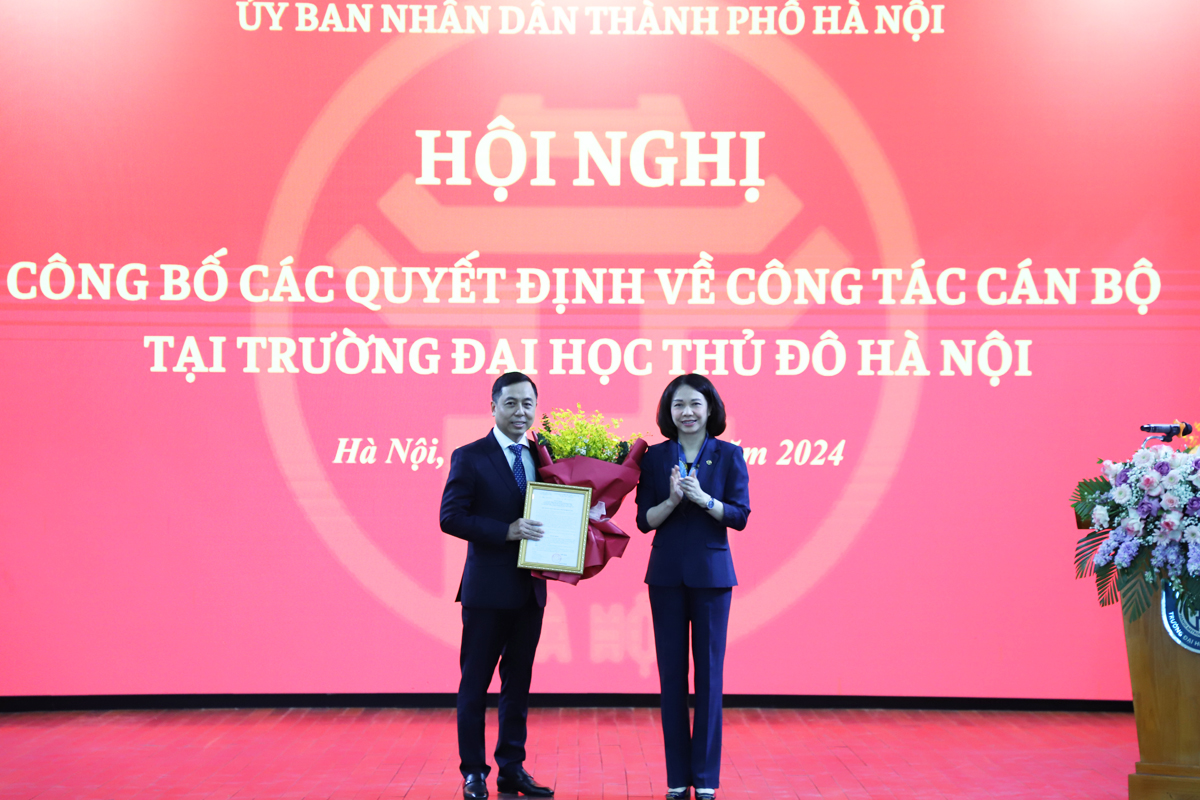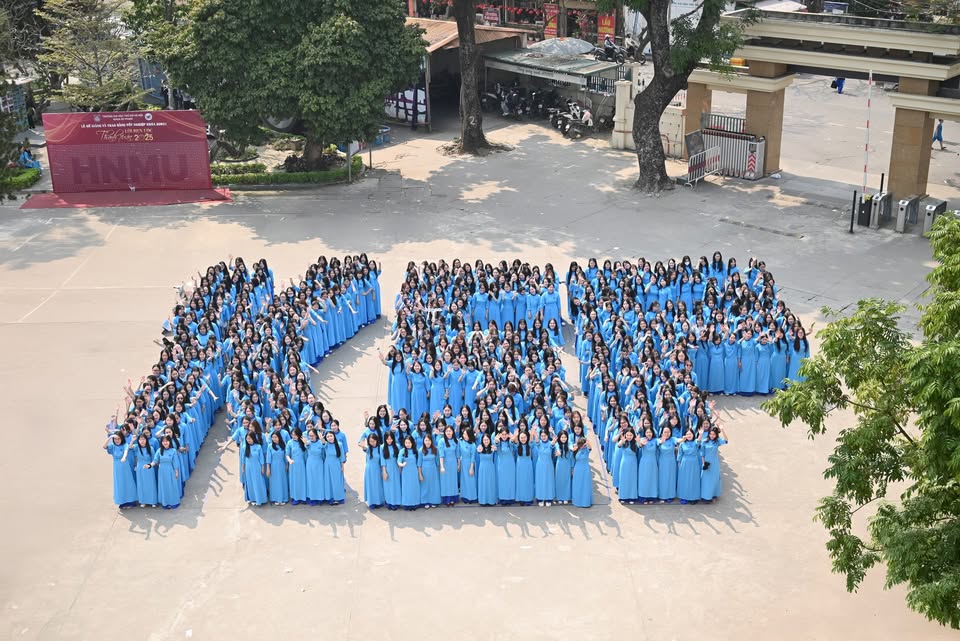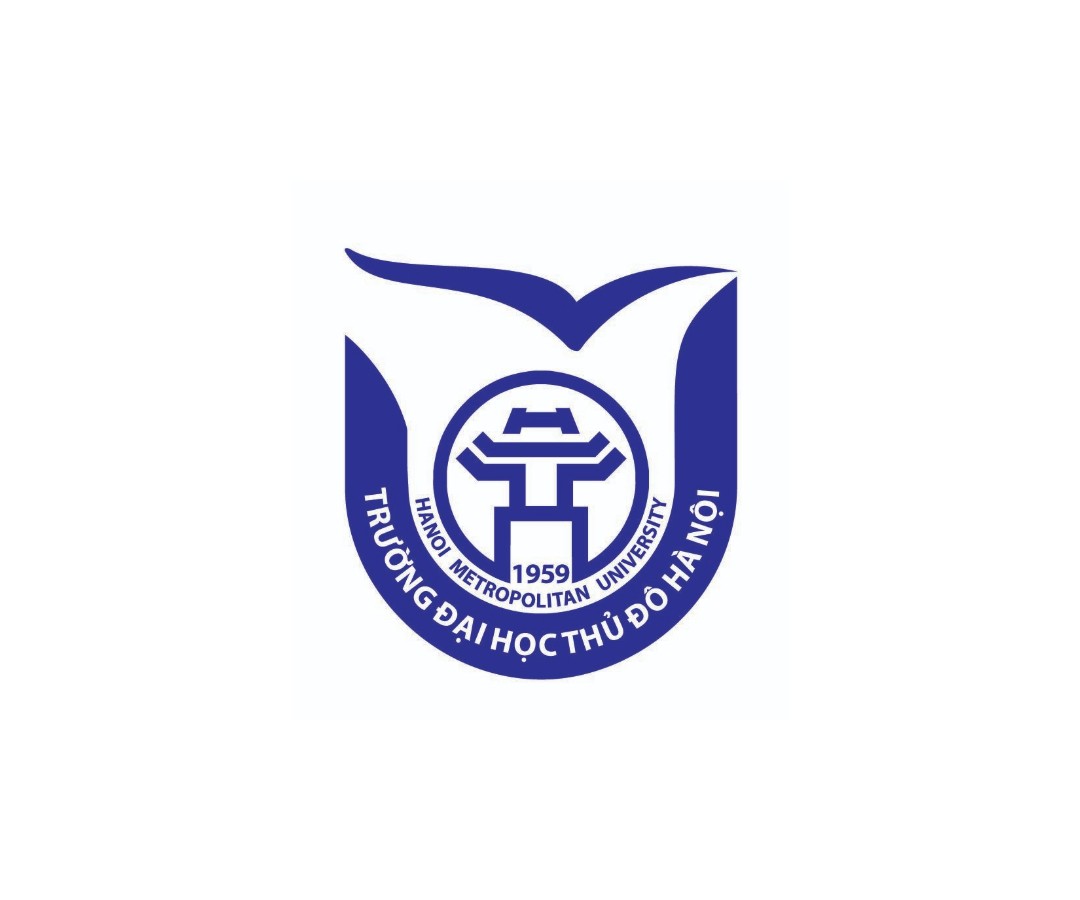History of Hanoi Metropolitan University
Hanoi Pedagogical College was established on January 6th, 1959. During more than 50 years of establishment and development, the school has developed constantly, made an active contribution into education and training of Hanoi in particular and the country in general. The school’s historical foundation and development was attached to the revolutionary struggle as well as development of the country which to be divided into thefollowing 9 key stages:
From 1959 to 1964 : Hanoi Primary & Intermediate Pedagogical School
In the preparatory process for the school-year 1959 – 1960, the Hanoi Department of Education sent a report to the Ministry of Education and the City Administration Committee for permission to open a Pedagogical School in Hanoi. The Department of Education assigned Mr. Nguyen Cong Tac and Mr. Bui Dinh Tan and several former teachers of Primary Pedagogical School and Chu Van An II to be accountable for opening the first Pedagogical School in the capital which is: Hanoi Primary& Intermediate Pedagogical School.
From 1965 to 1969: Hanoi Secondary Pedagogical School
7 + 2 training program for secondary school teachers was, as a matter of fact, a situational solution for a serious shortage of teachers in Hanoi a couple years after peace was restored. In fact, to have better qualified secondary teachers, we need to upgrade our training system when conditions allowed. Therefore, the school opened only two “7 + 2” courses, then switched to “10 + 1” program. To this point, the number of Hanoi secondary school teachers relatively sufficed as required, the Hanoi Pedagogical School developed the training mode for secondary school teachers by a longer program “10+2”.
“10+2” program yet remained an intermediate level, however, the quality of teachers was improved at significant level since students who had graduated from high schools after 10 years were able to access to knowledge base of university program.
From 1970 to 1975: Hanoi Secondary Pedagogical School
In the school year 1969 – 1970, the school retained only Secondary School teacher training system with 4 departments: literature-history, mathematics-physics,biology-chemistry, biology-geography. This was also the last year of Course I, at university level.
From this school year on, the school wore a new name: Hanoi Secondary Pedagogical School (10 + 3)
In 1967, the Ministry of Education assignedHanoi National University of Education to open a pilotexperiment on a training course(studying for 3 years) for secondary teachers who would teach 2 subjects at university level.
In the school year1967-1968, the school had a pilot admission of two (10 + 3) classes. At the same time, the school still continued to offer massive trainingprogram (10+2) and placed their two (10 + 3) classes next to the other two (10+3) classesin evacuation area ofMinistry of Education and delegated teaching staffs to teach and prepare text books and study materials for students.
Despite the transition of training from the intermediate to university (10 + 3) level was justexperimental, it marked a huge turning point for the school in term of quality. The transformation of Secondary School teacher training system from intermediate to university levelinitiated a relatively stable period for the school in the long run. The change in training systemcaused new problems in terms of content, method, administration and management, the school, hence, was forced to be on the look-out forresolutions.
From 1975 – 1978: Hanoi Secondary Pedagogical School
Since 1975, Hanoi Secondary Pedagogical School (10 + 3) has been considered the only unit that the Ministry allows for training secondary teachers as university-level program.
On the 31stof March, 1976, the Ministry of Education sent theDirective No. 764 to the Committee of Hanoi Administrationin preparing for the recognization of legal status of the Hanoi Pedagogical College. This Directive has played an important role in the school development.
To reinforce the management apparatus, an assistant principal was appointed to be in charge of knowledge expertise(Mrs. Vuong Thi Hanh) and some lecturers teaching Music, Painting, Physical Education, Industrial Technology, Agricultural Technology, Foreign Languages… were added for a new school year.
Thanks to timely and effective support,Hanoi Pedagogical School (10 + 3) was the only one to implement fullythe training of 12 original pilot programs at Pedagogical College level approved bythe Ministry of Education.
From 1978 to 1984:
Formerly, this was an irregularteacher training school, and legally-unrecognizedto organize exams and issue licenses or diplomas for (10+3) program pedagogical students, the school now has been recognized as a formal training unit for Teachers atPedagogical College level nationally (according to D 164-TTg dated 21-03-1978 of the Prime Minister on official recognition forTeacher Training Colleges). Since 1978, the school has started a new period of the longest training-term system, most stable and achieving the proudest achievement, all comes from that legal decision.
In the beginning of the school year1980-1981, Mr. Le Van Luong (Member of the Politburo and Secretary of Hanoi Party Committee) visited and surveyed the school. After the visit, the school has been considered a unit that is under direct management of People’s Committee of Hanoi city.
The school organizational structure: The School Board includes 1 principal and 1 Assistant- Principal. The school has 4 faculties and 1 affiliated organization (Natural Sciences, Social Sciences, Foreign Languages, Educational Psychology , In-Service) ; 4 departments and 1 board(Staff-Organization,Academic, Finance-Administration, General and Administrativeand Library Board)
From 1984 to 1989
Aiming at resolution and observation on the great minds of the fifth National Congress of the Communist Party of Vietnam,and looking towards the 30th anniversary of the school foundation, with determination to overcome all difficulties and with all focusedpower, entrepreneurial ideas, innovativementality, renewal of the staff organizations, innovative working styles, make better improvement forthe emulation titles achieved: Pure and strong Party, strong and sustainable Unions and Union of Ho Chi Minh Communist Youth.
Basic tasks of the 3-year plan from 1987 to 1990:
+ Implement successfully the Resolution of the fifth National Congress of the Communist Party of Vietnam
+ Innovate wholly school activities
+ Prepare qualified teaching team and cultivate favorable conditions to fulfill the task of teaching according to Decision No. 365 / QD issued by the Ministry of Education dated 20-03-1986
+ Endeavor that each teacher becomes a teaching expert at her/his grade level.
+ Launching multi-faceted competition movements to make achievements for the 30th anniversary of establishment of schools (06-01-1989)
From 1989 to 1994:
From the school year 1989 – 1990, the school applied the pilot training process: moving from a yearly training system to cumulative training modules. To do this, the school had to redesign its training programs for all 16 modules of different departments.
The school organized many seminars at department and school-level seminars for collectively intellectual promotion aiming at making a possible progressive training process. Professional groups focused on monitoring and reviewing the training programs, suitably delegating teaching, be more aware of guiding students to study and do research according to new training process, experimentally building funds for examinations for each subject.
The yearly training system was formerly ended by the graduation examination, with a new training system, it is replaced by the assessment and the recognition of graduation. After only one year, the new training process of the school has rapidly been in order.
From 1994 to 1999
As an only pedagogical institution in Hanoi, the Hanoi Pedagogical College is responsible for training primary and secondary school teachers who have college education and higher to meet management and education tasks at primary and secondary schools of the capital. Besides, the school also was responsible for fostering professional skills for teachers, education managers at primary and secondary levels so that they can meet and even reach higher the academic standards as increasing demands of the Hanoi education settled in.
For through resolution to those duties and functions, the Hanoi Pedagogical College established appropriate objectives, a part from teaching basic sciences, focused also on professional training for students, equipping their pedagogical competencies, basic professional skills when they were still student. This work was conducted with patience and synchronicity as follows: Direction focused on serious teaching the professional and science subjects ; attach the professional training with common practice; Create exemplary pedagogical environment in all activities to educate students; Regularly innovate professional training activities; Continue to innovate training, pedagogical practice.
School year 1998 – 1999 was the 40th anniversary of the school foundation, in emulation of effective teaching and effective learningatmosphere – maing achievements in honor of the Ceremony of Taking the Third Independence Medal and the 40th anniversary of the foundation of the Hanoi Pedagogical College, the school had experienced all-sided and powerful involvement.
Promoting the achievements throughout 40 years, the school directed all activities towards the goal of making Hanoi Pedagogical College The Hanoi Metropolitan University.
From 1999 to now
From the mid-1990s to the present, the school has sent to the concerned offices, the upper level the legally prepared documents for the process of upgrading the college to university.
The immediate objectives and for the first few years of the twenty-first century of Pedagogical College Hanoi: High quality training for Elementary and Secondary Teachers in observation towards proudly turning the University into the University of the Capital.








